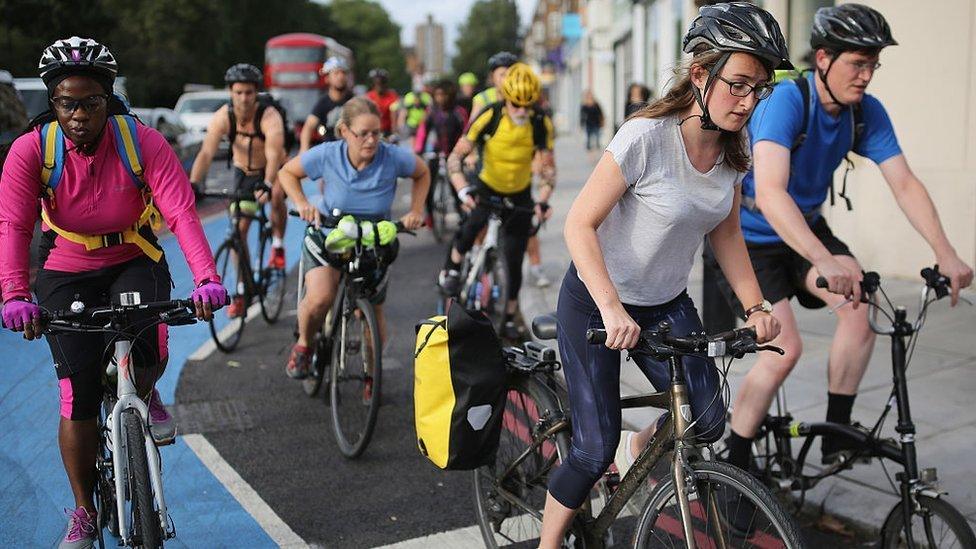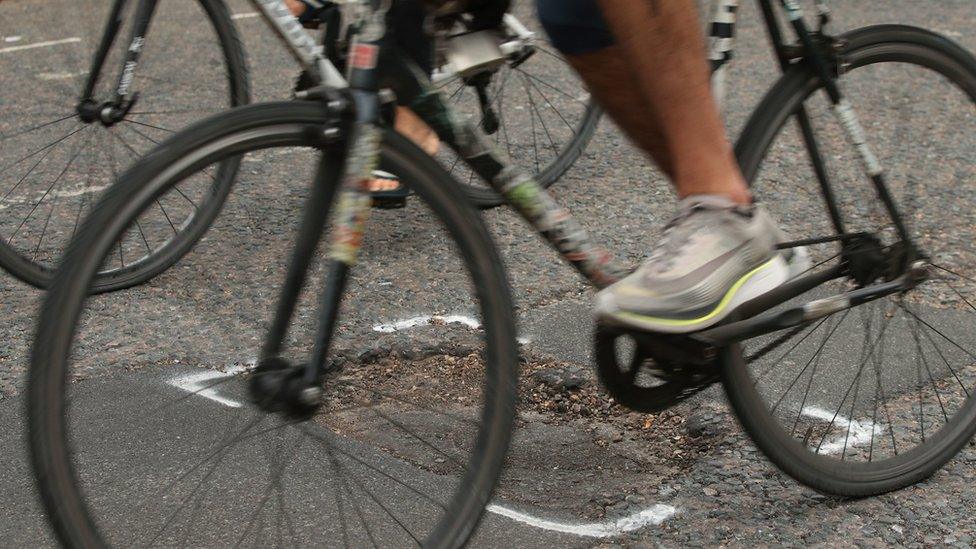Almost three-quarters of women 'never cycle'
- Published

Almost three-quarters of women in seven UK cities never ride a bike for local journeys, despite having a positive perception of cycling, says a survey.
More than 7,700 residents of Belfast, Birmingham, Bristol, Cardiff, Edinburgh, Newcastle and Greater Manchester were surveyed for Sustrans.
"Most of our cities are failing to design roads and streets for women to cycle," the charity said.
It says more dedicated routes would encourage people to ride bikes.
The cities surveyed are so-called Bike Life cities - part of a UK-wide assessment of cycling.
Twice as many men as women cycle at least once a week in the cities, the report said.
This is despite 72% saying things would be better if people in general cycled more often and more than two-thirds (68%) believing their city would be a better place to live and work if more people cycled.
The research found that many women simply do not feel safe cycling. Just 27% thought cycling safety was good in their city.
"There should be investment in on-road dedicated cycle lanes, protected from motor traffic, that get people to where they want to go directly and efficiently," said cyclist Verity Leigh, from Edinburgh.
"I've always cycled with my children on my bike from the time that they were babies. It's a practical thing for us, it's just a choice that makes our lives easier," Cerys Furlong, who lives in Cardiff, said.
'Eliminate gender gap'
The report pointed to the success of Cambridge - which has the UK's highest level of cycling - and attributed it to low speed limits, extensive cycle routes and expensive parking.
"Evidence from the UK and beyond shows that when dedicated space for riding a bike is provided, alongside engagement programmes, the gender gap in cycling can be eliminated," Sustrans chief executive Xavier Brice said.
The charity recommends prioritising women's road safety through protected routes and providing training programmes to enable more women to use bikes.
Dr Rachel Aldred, a transport academic at the University of Westminster, said women "too often have limited mobility".
"Enabling women to cycle can open up opportunities and help make our society more gender equal and inclusive," she said.
Earlier this month, a survey by charity Cycling UK suggested the most common reason people were put off cycling was sharing the road with large lorries.
- Published21 January 2018

- Published1 June 2018

- Attribution
- Published25 July 2019
